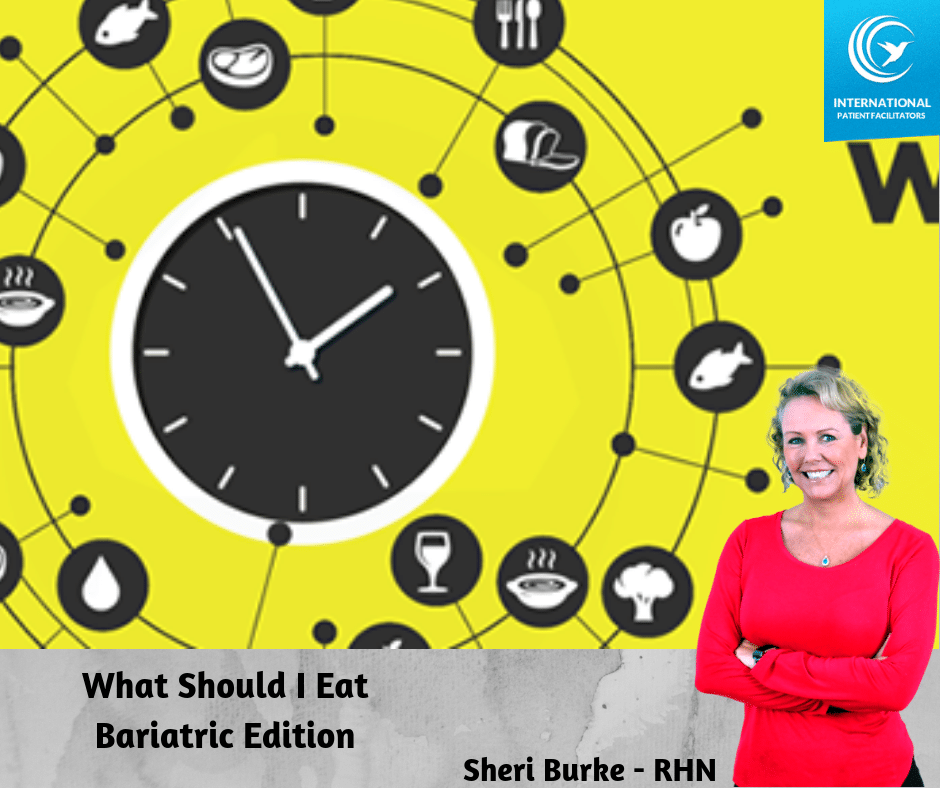What should I be eating after my weight loss surgery?
Macronutrient Breakdown
This is a huge question and this is what I talk about each and every day. This is also why I write these blogs and do my FB lives every Friday. I want to help clients understand about macro-nutrients and the importance of food and everything that’s got to do with “food and the bariatric client”.
It’s not the same breakdown for “normal folk”. Bariatric clients have a reduced stomach capacity so I need to be sure that the macronutrient breakdown works for them in the pre. op diet stage, post-op diet stage and also 1, 2, 3, 4, 10 years post weight loss surgery.
This is also not a question that can be answered in a “one size fits all” way. We have to remember that we are all biochemical individuals with different needs. Our caloric and macronutrient requirements often change depending on our gender, age, activity level, and health. Having said that, let’s discuss the targets that I like to see post bariatric clients reach.
The reason why weight loss surgery works is due a large part to the restrictive style of the surgery. Clients are no longer able to eat large portions of food. Depending on the type of procedure performed, the pouch will be a bit bigger or smaller. We need to understand that immediately after surgery, you will encounter a lot of inflammation. You will not know the actual size of your stomach until a few months after your procedure. This is when all the inflammation is gone and you will be able to fit more food into your new tool.
Because you are able to fit more food into your new stomach pouch, this does not mean that you have stretched out your stomach. This is just the normal progression with bariatric surgery. You need to be able to consume sufficient nutrients in order to not experience nutrient deficiencies. If you feel you are eating “too much”, it may just be because you are eating the wrong kinds of foods.
While 6 ounces of yogurt is easy to eat as it has a soft texture, 6 ounces of chicken will be more difficult to eat. Once you better understand food textures and how they feel on your newly operated stomach, you will be able to work better with your tool and make smart and nutritious decisions. Because you are able to eat larger quantities of soft foods, does not mean that your tool is not working. Choose harder textures if you wish to stay fuller for a longer period of time. That is how we work together with our tool.
Breakdown of Calories, Protein, Fat and Carbohydrates
How many calories should I be consuming daily post weight loss surgery?
This is a question that I get asked every day. While actively losing weight, aim for between 800 and 1200 calories per day. I know that may seem like a lot of calories when you are two weeks post surgery but remember, the swelling goes down and you will be able to fit more food into your pouch.
How much protein should I be consuming daily after bariatric surgery?
Aim to consume between 60 to 80 grams of protein per day. The actual mathematical equation to figure it out in your specific case will be your ideal weight, multiplied by .36.
If you are a bit short on protein one day, don’t fret, just try harder the next day. It is a fine balance between the size of your pouch and the amount of protein you can consume in the beginning.
Proper Protein Portions
- scrambled egg
- ounces of baked salmon
- ounces of beef or turkey jerky
- regular sized meatballs
- ounces of greek yogurt
How many grams of carbohydrates should I be eating every day?
I am not a fan of the processed or refined kinds of carbohydrates. I prefer that my clients get their carbs through fruit and vegetables. Try to keep your carb intake low – like under 50 grams please. When you are in maintenance you can increase this number but while actively losing weight, keep your grams of carbs under strict control please.
Proper Carbohydrate Portions
- 3 tbsp diced onions, peppers, and tomatoes
- 4 baked brussel sprouts
- 1/2 of a small sliced apple
- 1/3 cup of zucchini noodles with marinara sauce
- Raw veggies for dipping
- How much dietary fat should I be eating every day?
A good goal to aim for is to try to consume 20 grams of healthy fat per day. It’s a good idea to do a bit of research to figure out what is a “good fat”. Some of the foods you will find are avocados, coconut oil, nuts, seeds, and grass-fed butter.
Proper Fat Portions
- 1/4 of an avocado
- 1 tbsp olive or coconut oil
- 1 tbsp almond or peanut butter
- 1 tbsp parmesan cheese
I do believe that portion control should be practiced. We need to understand correct portion sizes. Eat Real Food. This is the best way to ensure that you are getting everything that you need and real food helps you to feel satisfied for longer periods of time.
Learning about food and macronutrient balancing is a journey. We cannot expect to learn everything overnight. Learn to read labels, and get interested in food and what it gives to you and your health. This is a lifelong process so enjoy the ride!
I believe in you! You’ve got this!
FaceeBook LIVE 3pm EST on Friday, April 19 th.

